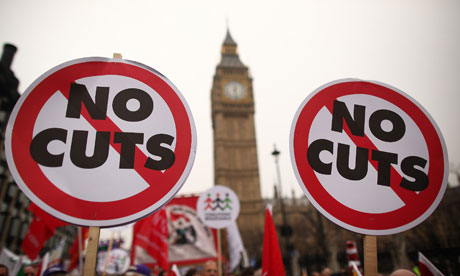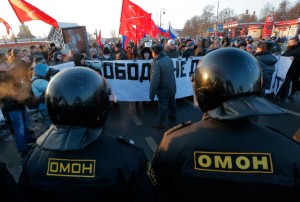
"Now that [the Democratic People’s Republic of Korea] has demonstrated its technical and scientific

"Now that [the Democratic People’s Republic of Korea] has demonstrated its technical and scientific

The following are excerpts from a much longer article, "The actuality of a successful capitalist offensive", that appea

Two workers of the 1000-member TRADOC cooperative. The hiring of women in the plant was one of the many gains of worker ownership. Photo by Bob Briggs.
By Jane Slaughter
April 3, 2013 -- Labor Notes -- A tyre is not just a piece of rubber with a hole in it. I learned this when I visited the workers’ cooperative that makes Cooper tyres in El Salto, Mexico. A tyre is a sophisticated product that comes about through a chain of chemical processes, lots of machine pounding, and still the intervention of human hands.
A fervent inspection worker pointed out that every single tyre is tested under road-like conditions, “If not, it could kill people”, he noted. And, he added practically, “keeping the tyres safe saves our jobs”.
April 4, 2013 -- Links International Journal of Socialist Renewal -- This gathering of left women’s organisations and activists from Afghanistan, Indonesia, Kurdistan, Nepal, Philippines and Sweden thanks the Nepalese women’s movement, especially
April 4, 2013 -- This statement in support of the Indigenous protest movement Idle No More is published in the Spring 2013 issue of Union Farmer Quarterly, the official publication of Canada’s National Farmers Union (NFU), an affiliate of La Via Campesina. The text is taken from John Riddell's site.* * *
With a January 15 media release, we made public our support for the Idle No More movement, saying:
“The NFU is proud to declare its solidarity with Idle No More, which is bringing people together from across Canada to stop the Harper government from riding roughshod over our collective rights. We want a better Canada.”

Nicolas Maduro drove a bus to the National Electoral Council to register his candidacy for president.
By Luis Hernández Navarro, translated by Ewan Robertson for Venezuelanalysis.com
March 29, 2013 -- La Jornada -- Nicolas Maduro is a robust, burly man, 1.9 metres tall with a thick black moustache. He drove a metro bus in Caracas for seven years, was foreign minister for six more and is now interim president and candidate for the country’s top office. He is part of the a generation of Latin American leaders like metal worker Lula da Silva and coco-leaf unionist Evo Morales, who entered politics from the trenches of opposition social struggles [translator: in opposition to the neoliberal administrations that governed Latin America before the continent’s "pink tide", which began in the late 1990s].

By the Social Movements Assembly of the World Social Forum, Tunisia, 2013
March 29, 2013 -- We are gathered here to affirm the fundamental contribution of peoples of Maghreb-Mashrek (from North Africa to the Middle East), in the construction of human civilisation. We affirm that decolonisation for oppressed peoples remains for us, the social movements of the world, a challenge of the greatest importance.
Through the WSF process, the Social Movements Assembly is the place where we come together through our diversity, in order to forge common struggles and a collective agenda to fight against capitalism, patriarchy, racism and all forms of discrimination and oppression. We have built a common history of work which led to some progress, particularly in Latin America, where we have been able to intervene in neoliberal alliances and to create several alternatives for just development that truly honors nature.

Boris Abramovich Berezovsky diedin London on March 23, 2013.

Anti-Putin protest in Moscow.
[For more by Boris Kagarlitsky, click HERE.]
By Boris Kagarlitsky, translated by Renfrey Clarke
March 30, 2013 – Links International Journal of Socialist Renewal -- In Russia, the first two weeks of January are a time when nothing happens. Members of the well-heeled layers, bureaucrats, politicians and the bourgeoisie, set off to spend their holidays abroad, distributing themselves around various locations on the basis of their means, tastes and vanity. Their destinations might range from comparatively cheap hotels in Egypt to ski resorts in France, Austria or Switzerland.
People who cannot afford such things simply drink, and shed their stress in front of the television, at their dachas in the countryside, or in the sauna.

"We are all Chavez"
By Tamara Pearson, Merida
March 27, 2013 -- Venezuelanalysis.com -- Although the results of the presidential elections on April 14, 2013, are quite predictable, Venezuela is are going through a fragile, vulnerable period, with a future that is less predictable. These elections, because of their place in history -- the start of the era of the Bolivarian revolution without Hugo Chavez – have some special characteristics and factors. The significance of these factors, of these weaknesses, opportunities, relationships of power, and so on, goes beyond the voting on April 14.